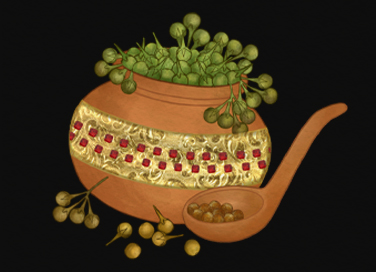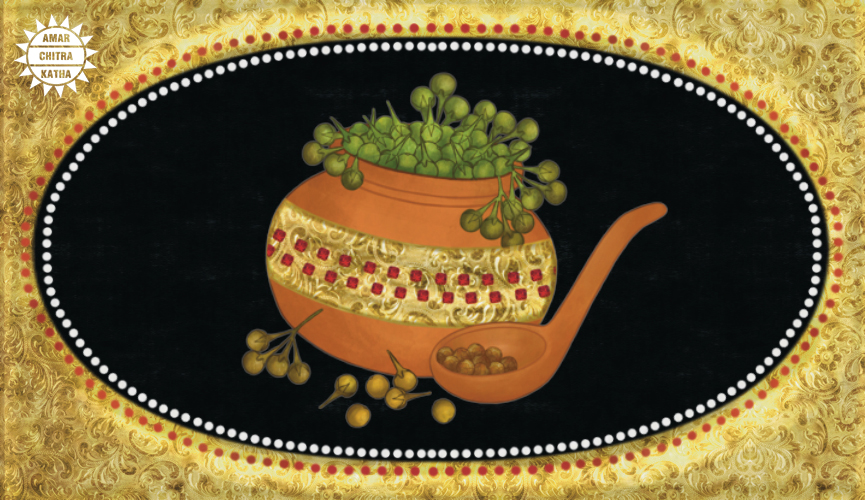Sundakkai: The Bitter Berry
- November 21, 2023


Sundakkai: The Bitter Berry
- November 21, 2023
By Shakthi Bharathi
According to Ayurveda, there are six tastes known as the ‘rasas’. Each rasa plays its own role in boosting health and influencing the taster’s mood. Thus, the perfect meal has to contain all six rasas: salty, sweet, pungent, sour, bitter, and astringent.
Bitterness often gets a bad reputation as the smell of burnt spices and the taste of medicine. However, the ability of bitters to balance out sweetness, cut through rich foods, and add depth of flavour, makes them integral to Indian cuisine. In the hands of a skilled cook, even the dreaded bitter gourd can be transformed into the crunchiest pakoras!
To receive more such stories in your Inbox & WhatsApp, Please share your Email and Mobile number.

Also known as turkey berry, this marble-sized fruit grows in thorny shrubs all through the year. Rich in iron, it is said to prevent anaemia, and has a sharp, metallic undertone to its bitterness. These little flavour bombs are used in South Indian chutneys and gravies. They are also sundried, fried in ghee or oil, and eaten as an accompaniment to rice.
In Siddha, one of the five alternative systems of medicine in India, these berries are used to treat gastrointestinal issues. So great are their digestive properties, they are often eaten to break a fast.
To receive more such stories in your Inbox & WhatsApp, Please share your Email and Mobile number.

Comic of The Month
The Sons of Rama
The story of Rama and Sita was first set down by the sage Valmiki in his epic poem 'Ramayana.' Rama was the eldest son of Dasharatha, the king of Ayodhya, who had three wives - Kaushalya, Kaikeyi and Sumitra. Rama was the son of Kaushalya, Bharata of Kaikeyi and Laxmana and Shatrughna of Sumitra. The four princes grew up to be brave and valiant. Rama won the hand of Sita, the daughter of King Janaka. Dasharatha wanted to crown Rama as the king but Kaikeyi objected. Using boons granted to her by Dasharatha earlier, she had Rama banished to the forest. Sita and Laxmana decided to follow Rama. While in the forest, a Rakshasi, Shoorpanakha, accosted Laxmana but had her nose cut off by him. In revenge, her brother Ravana, king of Lanka, carried Sita away. Rama and Laxmana set out to look for her and with the help of an army of monkeys, defeated Ravana. On returning Ayodhya after fourteen years of exile, Rama banished Sita because of the suspicions of his subjects. In the ashrama of sage Valmiki, she gave birth to her twin sons, Luv and Kush.